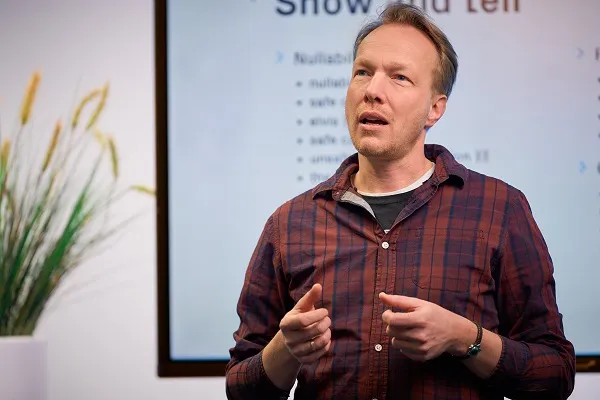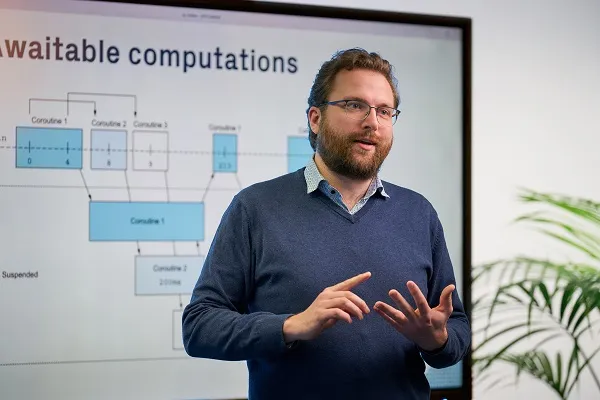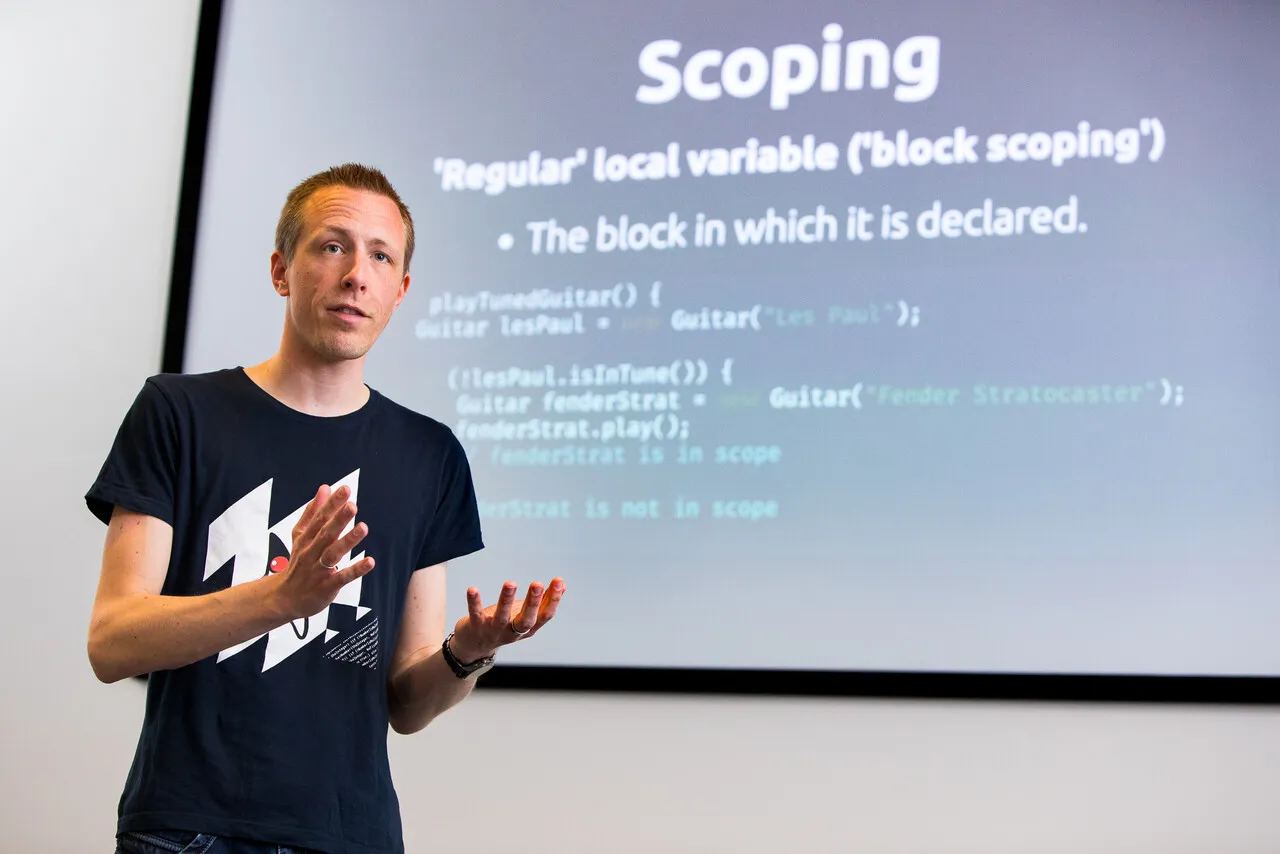course
Kotlin Fundamentals
Would you like to learn to program in a powerful, modern language suitable for front-end, back-end, and mobile platforms? Then choose Kotlin, one language to rule them all.

Description
Developers with experience in programming learn Kotlin, a modern programming language. It does not matter which prior knowledge you have, as long as you know the principles of (object-oriented or functional) programming.
You will learn the fundamental properties of Kotlin, after which you immediately begin writing practical Kotlin code. You can expect to understand these concepts by seeing real-world code examples. After that, you can follow up with the training "Advanced Kotlin", which starts the following day.
Learning Goals
with, let and apply by implementing the Singleton design pattern using these constructs. | |
Any, Unit and Nothing. | |
Prior Knowledge
You know the principles of (object-oriented and/or functional) programming.
Subjects
- Introduction
- Basics
- basic elements, classes and properties, choices, loops, exceptions
- Functions
- function declarations, extension functions, working with collections, strings
- Classes, objects, interfaces
- declaring classes, hierarchies, data classes, delegation, object
- Lambdas
- lambda expressions, collection API, sequences, Java interop, receivers
- Type system
- nullability, types, collections and arrays, immutability
Schedule
| Start date | Duration | Location | |
|---|---|---|---|
April 9, 2026April 10, 2026 | 2 days | Utrecht / Remote This is a hybrid training and can be followed remotely. More information Utrecht / Remote This is a hybrid training and can be followed remotely. More information | Sign up |
June 15, 2026June 16, 2026 | 2 days | Veenendaal / Remote This is a hybrid training and can be followed remotely. More information Veenendaal / Remote This is a hybrid training and can be followed remotely. More information | Sign up |
All courses can also be conducted within your organization as customized or incompany training.
Our training advisors are happy to help you provide personal advice or find Incompany training within your organization.
Trainers
Follow-up courses
"Extremely good teacher"Sander
-
Hoge waardering
-
Praktijkgerichte trainingen
-
Gecertificeerde trainers
-
Eigen docenten






